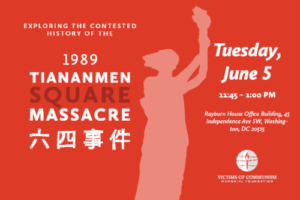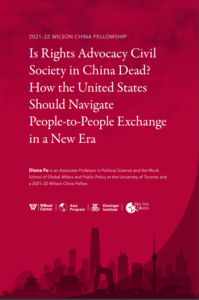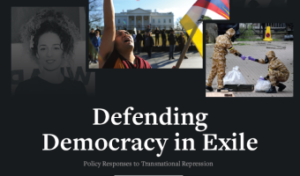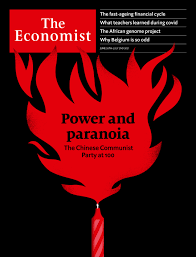
In a classic case of Orwellian narrative distortion, China’s Communist authorities have banned the word ‘lockdown’ and ordered state-controlled media to describe the Zero Covid restrictions that confined 25 million people to their homes as ‘static management-style suppression,’ China Digital Times reports.
“Unlike Wuhan, Shanghai never declared a lockdown, so there is no ‘ending the lockdown’,” said censorship directives issued to media on Tuesday, and leaked to the China Digital Times.
Saturday marks the 33rd anniversary of China’s bloody crackdown of pro-democracy demonstrations in and around central Beijing’s Tiananmen Square, when Chinese troops opened fire on their own people, Reuters reports.
Since Xi Jinping took power in 2012, advocacy-oriented civil society—those that mobilize for rights associated with liberal democracies—in China has been placed under immense pressure, notes Diana Fu, an Associate Professor at the University of Toronto’s Munk School of Global Affairs & Public Policy.
 In a new report, Is Rights Advocacy Civil Society in China Dead?, she assesses whether rights advocacy civil society in China is effectively “dead”, arguing that a key to analyzing the party-state’s response to advocacy civil society is to disaggregate two facets of threat – mobilizational and ideological:
In a new report, Is Rights Advocacy Civil Society in China Dead?, she assesses whether rights advocacy civil society in China is effectively “dead”, arguing that a key to analyzing the party-state’s response to advocacy civil society is to disaggregate two facets of threat – mobilizational and ideological:
- The first facet has to do with civil society groups’ potential capacity to amass human, financial, and moral resources in order to stage contentious collective action, thus forming an oppositional force against the state.
- The second, ideological facet has to do with deep-seated, and longer-term influences around citizens’ political values and interpretations of social issues. It is this latter sphere which the Party under Xi Jinping’s leadership has sought to re-establish control.
China is one of several autocratic regimes aggressively targeting dissidents on U.S. soil, according to a new Freedom House report, funded by the National Endowment for Democracy (NED).
 In 2020, a New York City police officer originally from Tibet was charged with acting as an illegal agent of the Chinese government and using his position to collect information about the Tibetan diaspora, The Post reports. The officer, Baimadajie Angwang, had been granted asylum in the United States at the age of 17 after claiming he would be tortured if he returned to China.
In 2020, a New York City police officer originally from Tibet was charged with acting as an illegal agent of the Chinese government and using his position to collect information about the Tibetan diaspora, The Post reports. The officer, Baimadajie Angwang, had been granted asylum in the United States at the age of 17 after claiming he would be tortured if he returned to China.
In response to the Biden administration’s Summit for Democracy, Beijing has recently reiterated its narrative that Western support for Chinese civil society is nothing but a front to undermine the stability of the Chinese Communist Party’s rule, the Munk School’s Fu adds.
The Party’s perception of civil society as an ideological challenge was evident in Document Number 9, a communique circulated in April 2013, early in the Xi administration, which also cited the threat posed by constitutional democracy, liberalism, media freedom, and universal values of freedom, democracy, and human rights. Specifically, the document characterized civil society as “a socio-political theory that originated in the West” which views individual rights as “paramount.” This ideological challenge becomes a mobilizational threat, the document warns, when civil society is used to “squeeze the Party out of leadership of the masses at the local level…to the point that their advocacy is becoming a serious form of political opposition.”
 Accordingly, the party-state has been actively remolding a key pillar of civil society—educational institutions and their affiliates—in order to ensure that future civil society networks will espouse pro-Communist Party ideologies and norms of civic engagement, Fu observes:
Accordingly, the party-state has been actively remolding a key pillar of civil society—educational institutions and their affiliates—in order to ensure that future civil society networks will espouse pro-Communist Party ideologies and norms of civic engagement, Fu observes:
- U.S. foundations and philanthropic organizations should support and fund programs that facilitate youth-led exchange from Mainland China and Hong Kong to the United States and vice versa.
- Civil society actors and INGOs should continue to share best practices among the donor community about adaptive strategies in authoritarian states as well as encourage best practices sharing between Chinese civil society organizations and INGOs.
Policymakers should strategically reframe programs to substitute “democracy promotion” rhetoric with substantive, non-ideological language such as “civic engagement” and “capacity bridging,” she contends. RTWT







